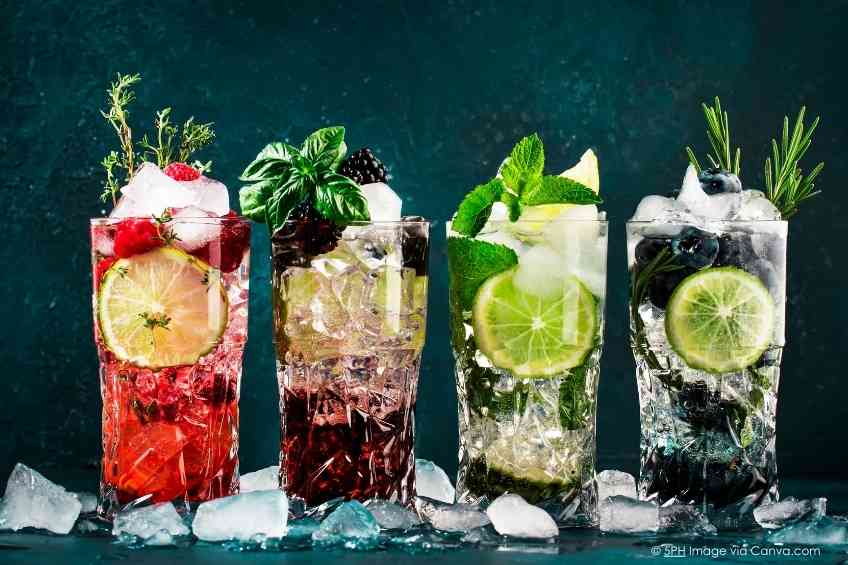By John Salak –
Sacrebleu. The French just set an official definition for natural wines, which means the government has approved a charter and all-important label designation for what is otherwise known as low-intervention wines. That’s no small development considering France is always one of the world’s top three wine producers in terms of volume and arguably ranks as the industry’s most influential voice.
But what does this mean for the average fermented grape tippler? Hard to tell. While natural wines have grown in popularity over the last decade, they’re not new. In fact, people have been making wine sans additives for thousands of years. The French just gave the product a legal definition—but the definition’s reach doesn’t extend beyond the country’s borders where subtle regulatory differences between countries exist.
Definitions and regulations aside, the bigger questions facing consumers are whether natural wines are healthier, decent to drink and how, if at all, they differ from organic wines.
Natural and organic wines are certainly similar in that they are lite or nonexistent when it comes to chemicals and additives in the winemaking and grape-growing process.
The new French definition, for example, requires that natural wines be made from certified organic grapes that are handpicked, according to The Wine Spectator. These wines also have to use native yeast strains and cannot toss in additives (caveat below) or alter the basic wine process by applying reverse osmosis, filtration and flash pasteurization.
The regulations do allow growers to add a small amount of sulfur dioxide (SO2) before bottling. But the final product must contain less than 30 milligrams per liter. And if even a small amount of sulfur is added, it has to be flagged on the label.
Get outside of France and the definition of natural wines differs, although the aim broadly remains the same, meaning these low-intervention wines are produced with limited or no sophisticated interference in the form of additives, chemicals, sulfur, oak character from barrels, filtering, cultured yeasts, etc. “In theory, natural wines are more alive, less manipulated,” according to Food&Wine.
Organic wines, in turn, are already well defined, but again regulations vary. The U.S. and the European Union, for example, have different organic certification processes. And to gain an organic USDA certification in the U.S., wines must completely skip sulfur dioxide—even though it’s been used since Roman winemaking to prevent oxidization and refermentation. Beyond this, vineyards need to practice organic farming methods that preclude the use of pesticides, chemical fertilizers and herbicides.
Further definitions and distinctions between natural and organic wines were offered up in March by Isabelle Legeron, founder of RAW wine fair. In an interview with Decanter prior to Raw Wine London 2020, she explained that natural wine is basically fermented grape juice and nothing more. The goal is to “bottle a drink that is alive [and] full of the naturally occurring microbiology that existed on the grapes and in the cellar too,” Legeron added.
Another nuance between these winemaking processes surfaced when she noted that “all-natural wines are organic but not all organic wines are natural.” This occurs because while organic winemaking rules are stricter than for non-organic wines, Legeron noted that organic winemakers can use “additives, like yeast, winemaking aids, like fining agents, and processing, like sterile filtration and pasteurization, that would not be allowed at all in natural winemaking.”
Natural and organic wines, admittedly, seem to have a leg up on being healthier than traditional wines, which can add more than 60 different substances to their finished product. Traditional U.S. winemakers, for example, can add up to 350 parts of sulfur dioxide per million. That’s a relatively high level, especially since sulfites are seen as the main culprit when it comes to wine-generated headaches.
Yet whether sulfites or other additives lead to hangovers or headaches for the general masses is uncertain, as some researchers claim the evidence is mixed or nonexistent. Admittedly, a small percentage of consumers are allergic to sulfites, which can have unpleasant consequences. But Associate Professor Marco Costanigro of Colorado State University says his research indicates consumer perception plays a role in sulfites being singled out.
Sulfites might not even be the real cause of wine-drinking hangovers and other problems. “Whenever someone has a negative experience after drinking wine, they attribute it to sulfites, because it’s the compound listed on the label,” Costanigro told Elemental. In fact, research from the University of Florida indicates allergic reactions to sulfites usually cause breathing problems and flushed skin, not headaches. Besides, he adds “Sulfites are used as preservatives in many food items—dried fruit, for example. But did you ever hear people complaining about getting headaches from dried fruit?”
The ultimate question confronting natural and organic wines may be their quality. If they’re not any good, doesn’t matter how healthy they are—few, if any, will see their corks popped. Not surprisingly, judging the quality of these wines is tricky, although wine aficionados are quick to note the natural wines can be an acquired taste.
“Given that natural wine is often described as cloudy, funky, and/or barnyard-y, many people assume that it’s always loudly, inherently weird. While natural wine is often unfiltered (that leads to cloudiness) and can veer sharply into funky territory, there’s also lots of natural wine that won’t feel like an acquired taste if you’re used to buying yours at Costco,” Marian Bull noted in Vox.com.
Food&Wine was a bit more direct. “Some natural wines are delicious, and some are just flat-out weird. But the passion behind the movement makes the natural wine world hard to ignore. At their best these wines can be thrilling. Just be ready for unpredictability.”












